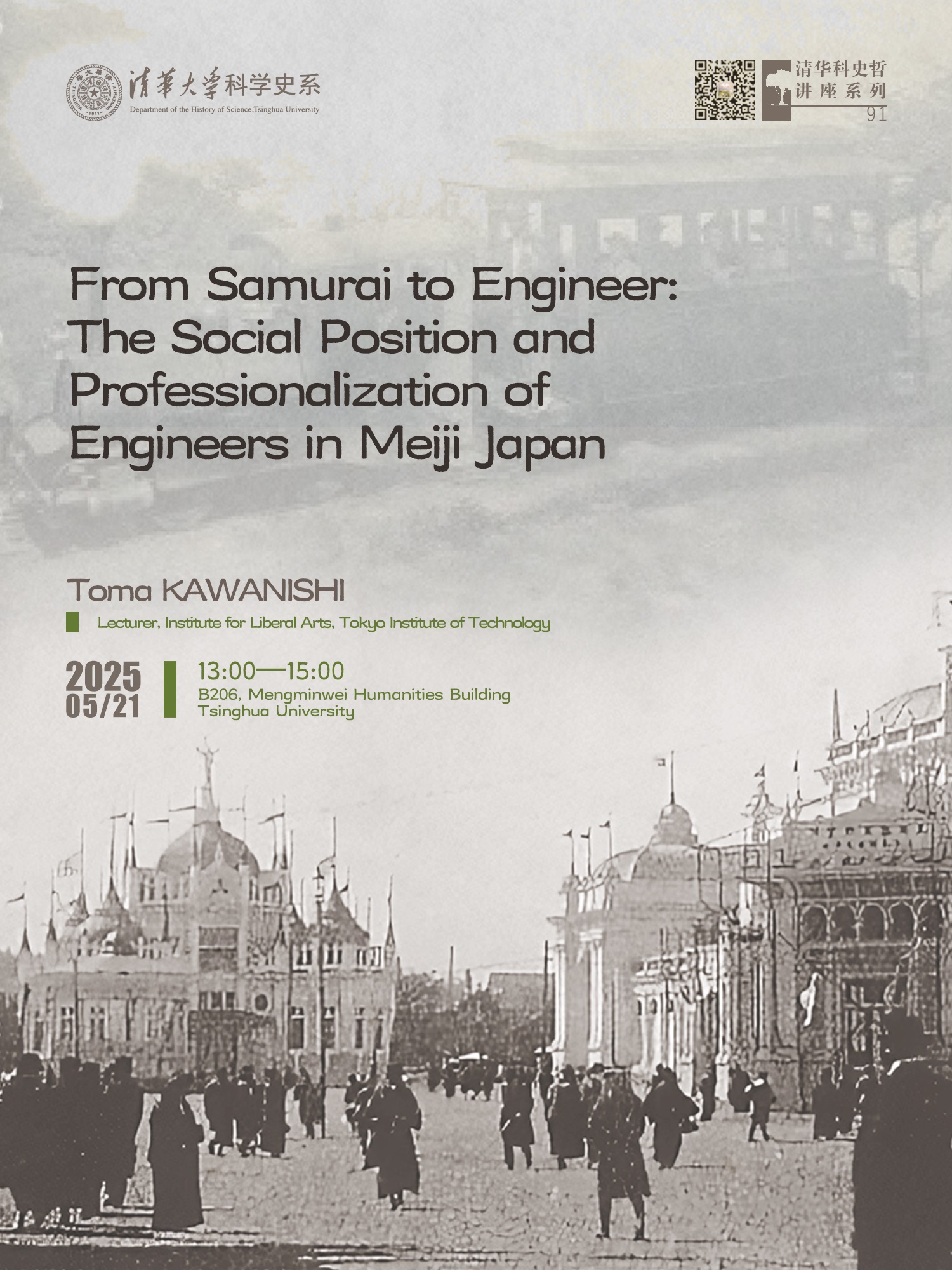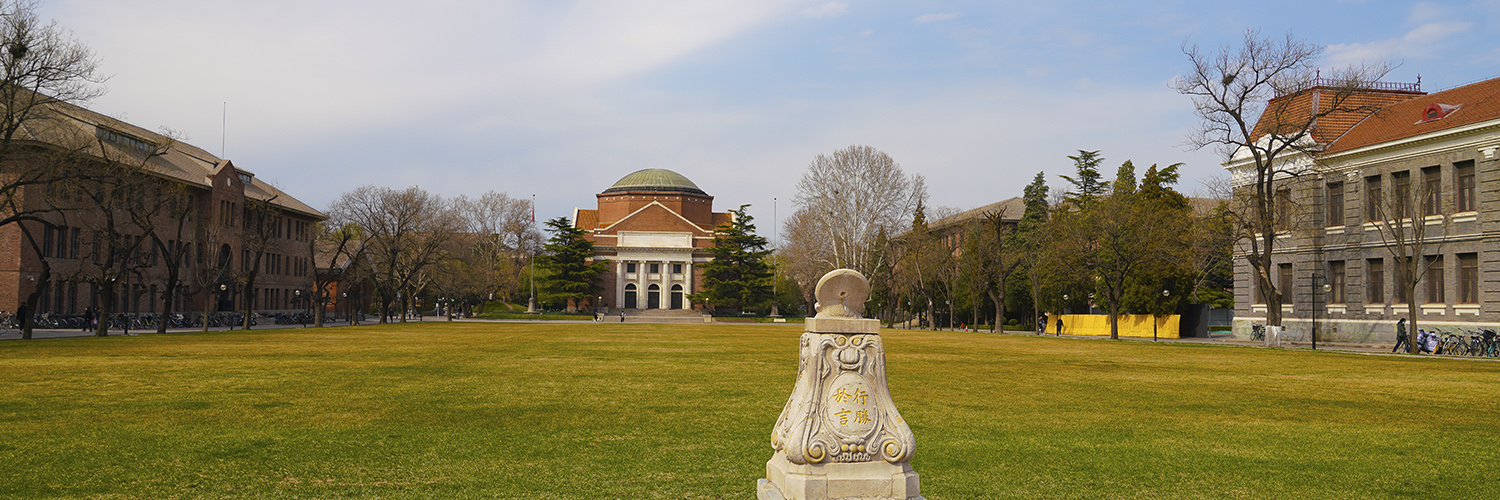时间:2025年5月21日 13:00—15:00
地点:清华大学人文楼B206
主题:From Samurai to Engineer: The Social Position and Professionalization of Engineers in Meiji Japan
主讲人:Toma KAWANISHI (Institute for Liberal Arts, Tokyo Institute of Technology)

讲座摘要:
This lecture explores the emergence and professionalization of engineers in Meiji Japan, with particular attention to the broader context of modernization and Western model selection. Following the disruptions caused by Western imperialism in East Asia, the Meiji government actively pursued rapid modernization by selectively adopting foreign systems, notably British, German, and Scottish models in engineering education. The lecture highlights the foundation of the Imperial College of Engineering under strong Scottish influence, and the pivotal role played by early foreign advisors such as Henry Dyer. It also examines the social transformation that enabled former samurai to become the core of Japan’s first generation of engineers, drawing on Enlightenment ideas introduced by thinkers like Fukuzawa Yukichi and Nakamura Masanao. Through the cases of key Meiji engineers, the lecture traces how engineering became not merely a profession but a new pathway for social mobility and nation-building in Meiji Japan.
主讲人简介:
Toma KAWANISHI's research field includes the history of technology, science, and their interrelationship. He also has an interest in the history of the thoughts or ideologies of engineering.
Until the first half of his doctoral studies, he focused on the history of information science, especially the development in the pre-WWII German-speaking world. He is now specializing in electrical engineering history (especially that of communication) from the 19th century to the first half of the 20th century.
His basic research interest is the history of technology during and after the second industrial revolution. He is studying the history of electrical technology and engineering as its prime example. The main research interest is what the relationship was like (both epistemologically and socially) during this period.


